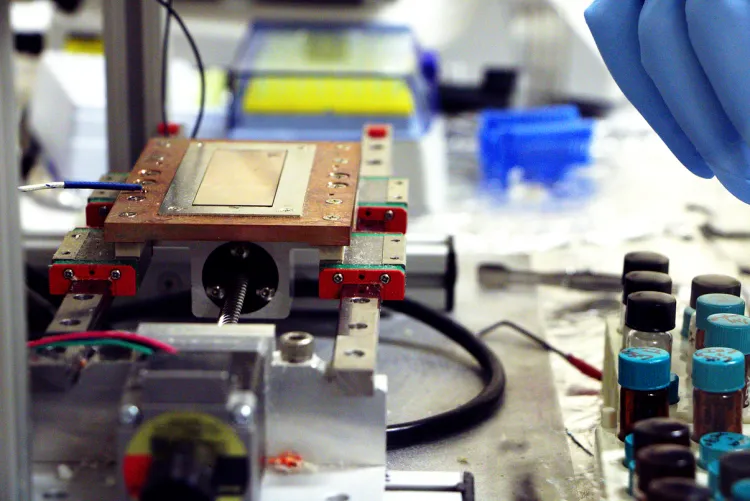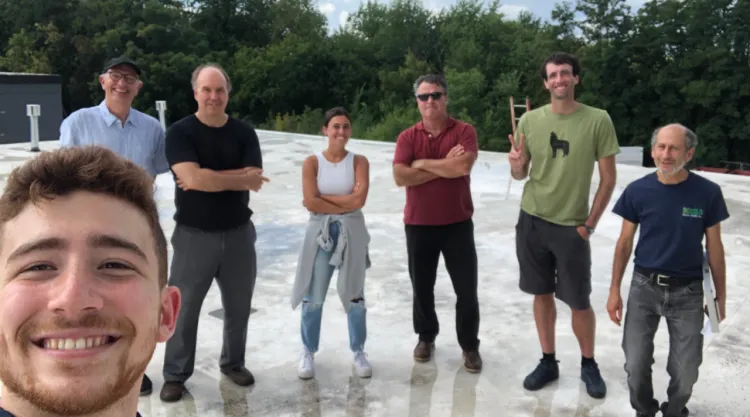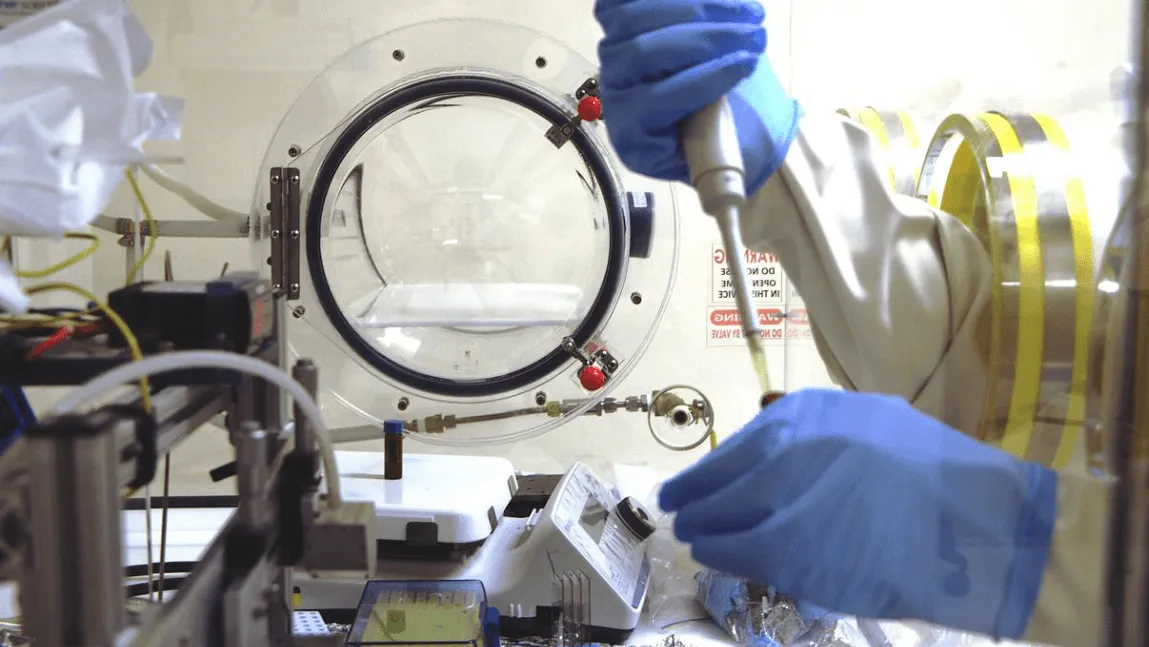With their revolutionary solar panels, Verde Technologies enthralled the judges and participants at this year’s Clean Tech Open—the world's largest and longest-running clean technology accelerator. The University of Vermont startup’s thin-film perovskite solar panels, which are lightweight, flexible, affordable, and easily installable because of their adhesive backing, won second place and the People’s Choice awards at the Cleantech Open's annual Global Forum, held in San Jose, Calif., in October. Verde competed against over 90 companies from across the globe.
Randall Headrick and Richards Miller of UVM’s College of Engineering and Mathematical Sciences are the Research Lead and President/CTO, respectively. The two invented this innovative solution and founded Verde Technologies with a simple but profound mission: to create the lowest-cost clean energy the world has ever seen.

Headrick had been working on thin film deposition methods as part of his scientific research and had accumulated several patents when he met Miller in 2018. Miller had moved back home to Vermont after getting his Ph.D. in Physics and “jumped at the opportunity” to work on a project of this scale. Once they secured National Science Foundation (NSF) funding through the Partnerships for Innovation program, which is geared towards commercialization of technology, and funds from the Department of Energy, they were off and running in August 2019—just before COVID hit.
Pivot
“The pandemic changed things a lot,” Headrick said. “In some ways it helped us because we needed to do ‘customer discovery,’ which involves interviewing 100 potential customers and stakeholders in the field. Rather than doing in-person visits, we just did a lot of zoom meetings. We ended up interviewing people on different continents that we would not have reached if we were doing in-person interviews. So I think it actually helped us in a way.”
But that help had its limits. “Research came to a screeching halt,” according to Miller. Headrick agreed. “We were not able to work in the lab for some time, which seemed terrible, but in hindsight, that is when our business model started to take shape.”
“Originally we were working on thin film deposition hardware,” Headrick said, “but we changed to thin film solar cells. In business, the word is ‘pivot.’ We pivoted to solar cells based on what we were hearing about commercialization opportunities in that area.”
Verde’s perovskite solar panels, which are superior to silicon ones, will accelerate renewable energy transition, make it more affordable, and position the business to accomplish their goals of bringing their product to market by 2024 and lowering the Levelized Cost of Energy (LCOE) of solar by 2030.
Alternative Energy for Everyone
Headrick and Miller know that making alternative energy more affordable is vital to its widespread use and, by extension, its positive effect on climate change. “Solar panels are a commodity market, so cost and efficiency is the top priority,” said Headrick. “One thing we Iearned about commercialization is that to beat an entrenched technology you need to beat it by a large factor (factor of 3, maybe) on a couple of key metrics. Almost right away we started hearing that 40 percent of rooftops cannot handle the weight of conventional solar modules.” Verde’s solution stands to solve that challenge.
“It turns out that thin film solar can beat conventional solar by something like a factor of 8 on weight. Thin film solar should be able to deliver better efficiency if it is based on lead-halide perovksites,” Headrick said. Thin film solar can be peel-and-stick, i.e., mounted with an adhesive rather than heavy mounting brackets.
Miller explains how this approach has long-term benefits. “In the end of the day everything boils down to economics, and while everyone wants to help combat climate change, they will only do it if the money works out in their favor, thus the cheaper we can make it, the bigger an impact we can have.”

From left to right: Skylar Bagdon; Michael Metz, Burlington City Arts; Randall Headrick; Nicole Eaton; Chris Burns, Burlington Electric; Richards "Chad" Miller; Ben Gordesky, DC Energy Innovations
Growing Green
Verde’s growth, post pivot, has been dramatic. Once UVM alumni Skylar Bagdon joined as CEO and UVM senior Nicole Eaton joined as Head of Partnerships, their business plan began to take off. Plus, UVM’s resources for entrepreneurship were instrumental in supercharging the alignment of research with market-ready preparations. “UVM innovations, the VP for research, faculty from the Grossman school, the undergraduate Academic Research Commercialization (ARC) program – all of these have been helpful and supporting” Headrick said. “I would particularly call out Kerry Swift, Corine Farewell, Erik Monsen, and our colleague from the Physics Department, Professor Matthew White.
Their wins at the Clean Tech Open – which has, since 2005, trained over 3,500 entrepreneurs from 1,800 early-stage clean technology startups through its annual business accelerator – garnered Verde $200,000, mentors across the field, and a big push towards their 2024 goal. “Clean tech is an industry whose time has come,” Headrick says. “Hopefully in time to save us from the worst effects of global warming.”
Miller reflects on how this work has impacted his career. “Climate change has been my driving force since high school,” he says. “I remember going to college and then grad school thinking that I’d love to learn enough to make a difference that would be tangible in people’s lives and help the earth. I really got lucky in the sense that all that work paid off in that I now get to work on that very subject in a way I think has the potential to make a huge difference.”
